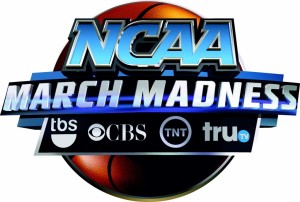 I’m not a huge basketball fan. But like millions of Americans, I follow the annual event know as March Madness, where 68 college hoops teams come together over the course of three weeks to determine a true national champion. And when March Madness rolls around, it means two things. One, workplace productivity throughout the land will take a big hit over the next few weeks. Two, the upsets will be flying fast and furious.
I’m not a huge basketball fan. But like millions of Americans, I follow the annual event know as March Madness, where 68 college hoops teams come together over the course of three weeks to determine a true national champion. And when March Madness rolls around, it means two things. One, workplace productivity throughout the land will take a big hit over the next few weeks. Two, the upsets will be flying fast and furious.
Americans love to root for the underdog, and the upsets are a big part of what makes the NCAA Basketball Tournament so exciting. We know they’re going to occur, we just don’t know when. The fun part is trying to predict which of the higher seeds will fall, and to whom.
So far, this year’s tournament has delivered more than its usual share of surprises.
Fourteenth seed Harvard knocking of 3rd seed New Mexico. Fifteenth seed Florida Gulf Coast knocking off 2nd seed Georgetown in the second round (only the seventh time ever a 15-seed has knocked off a two-seed). Top-seeded Gonzaga falling to 9th-seeded Wichita State in the third round.
All three of those games messed up my bracket, but it’s hard not to root for a team that’s exceeding all expectations. And it’s hard not to get caught up in the excitement of the players and fans after an unexpected victory.
I often use winning in sports as a metaphor for winning in business, and March Madness is no exception. Here’s what I learned thus far from this year’s tournament.
Get clear on winning.
Every player in the tournament can easily visualize the goal — cutting down the nets and hoisting the NCAA trophy at the end of the championship game. In business, the goal can often be more elusive and harder to define. Your job as leader is to make it as clear as possible and then communicate it over and over so that everyone understands what it will look like when your organization wins. What will cutting down the nets look like for your business? What “trophy” will you hoist when your organization wins?
Get people believing they can win.
Whether in basketball or any other sport, one critical thread runs through every upset — getting the players to believe they can win. I love this quote from the coach of Florida Gulf State, who said, “I told our team that Georgetown is ranked #8 in the country. But after you get out on the court for two or three minutes, you’ll realize that you’re just as good, if not better than this team.” In business, this equates to constantly communicating to employees how you’ll win and why. If you hit a major snag, refocus your plan and let your team know why you will still win.
Get everyone working as a team.
It’s a truism in sports, and one that regularly makes itself evident with March Madness, that the most talented team doesn’t always win. In fact, if that were the case, we wouldn’t have any upsets to get excited about. Sometimes the disparity in talent is too much for the underdog to overcome. But more often than not, the team that plays together and does the best job of executing its game plan is the one that comes out ahead.
Expect adversity.
In basketball, refs make bad calls. Good players make silly turnovers. Key players get hurt. Sometimes the ball just takes a bad bounce. In business, markets can change overnight. A new competitor can come out of nowhere to steal market share. Business models can get obsoleted by new technologies. Whether in sports or business, winners takes these things in stride and continue on without losing focus. In fact, the clearer the focus on winning, the greater the organization’s ability to persevere in the face of setbacks.
Adapt and adjust.
The ability to adapt under game conditions is what makes the great coaches (and teams) great. They have a knack for figuring out what the other team is doing and adjusting their offenses and defenses accordingly. Business leaders must do the same. In today’s markets, the ability to analyze the data and react quickly and appropriately to changing customer needs and market conditions is what separates the winners from everyone else.
In the Sweet Sixteen round, new questions arise. Can the upset winners maintain their momentum? How will the favorites adapt when playing a team they didn’t expect to face? Which teams can handle the increasing pressure and which can’t? And most important, who will be the one team left standing to cut down the nets on April 8?
Who are you betting on to win this year and what will you do in your own life or business to focus and win?
Call to action: If you haven’t already done it this year, get clear on what winning looks like for your organization.








